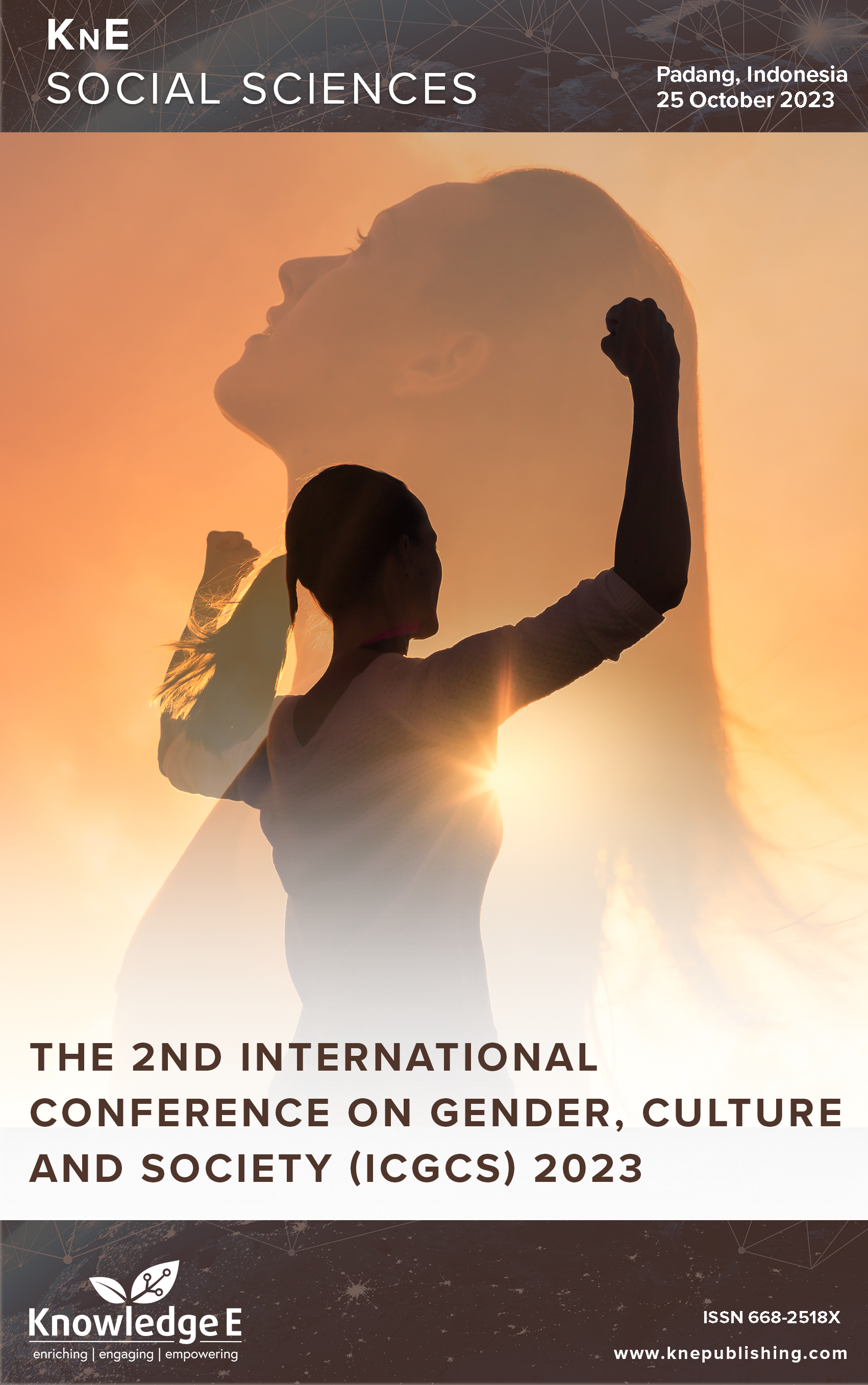Analyzing The Effectiveness of 30% Gender Affirmative Action Policy in Indonesia
DOI:
https://doi.org/10.18502/kss.v9i23.16731Abstract
The Indonesian government’s 30% Affirmative Action Policy addresses gender inequalities by bolstering women’s representation in strategic positions. This research investigated the policy’s effectiveness in achieving this goal and uncovered constraints hindering women’s active participation in politics. Grounded in both gender equality and affectivity theories, the study pinpoints key issues of gender imbalance and investigates the policy’s impact on organizational dynamics within the political sphere. A qualitative analysis, informed by a comprehensive literature review, suggested that the implementation of the 30% Affirmative Action Policy since the reform era has demonstrably contributed to an increase in female representation within the political sphere. However, the policy’s effectiveness remains contingent upon addressing various challenges, including the persistent underrepresentation of women across both legislative and executive positions, where the 30% target has yet to be consistently achieved. Key influential factors in the implementation of this policy include the roles of the government, political parties, and society. Nevertheless, the policy is crucial in reshaping social norms regarding gender roles in politics. Overall, this article provided a comprehensive overview of the effectiveness of the 30% Affirmative Action Policy in achieving optimal gender representation in Indonesia. Policy implications and recommendations for enhancing the sustainability and effectiveness of this policy were also discussed to advance women’s participation in various social and professional aspects of life in Indonesia.
Keywords: effectiveness; affirmative action; women’s representation
References
Yadav P. Do political quotas work? Gender quotas and women’s political participation in Nepal. Eur J Polit Gend; 2023. pp. 1–19. [Internet].
Tripp A. Women’s Movements and Constitution Making After Civil Unrest and Conflict in Africa: the Cases of Kenya and Somalia. Polit Gend. 2016;12(1):78–106. DOI: https://doi.org/10.1017/S1743923X16000015
Möhring K, Teney C. Who supports affirmative action policies for women and immigrants in recruitment processes? An international survey experiment. 2021. Available from: https://osf.io/preprints/socarxiv/hxbeu https://doi.org/10.31235/osf.io/hxbeu. DOI: https://doi.org/10.31235/osf.io/hxbeu
Sofjan D. Pancasila and the Dignity of Humankind. Int J Interrelig Intercult Stud. 2018;1(1). DOI: https://doi.org/10.32795/ijiis.vol1.iss1.2018.82
Vasandani MR, Nugraha DP, Susantijo S. Affirmative Action Study on the Political Rights of Women in the Indonesian Constitution. Const Rev [Internet]. 2022;8(1). Available from: https://consrev.mkri.id/index.php/const-rev/article/view/813/pdf https://doi.org/10.31078/consrev813. DOI: https://doi.org/10.31078/consrev813
Lu SF, Lu JL. The electoral quota – a form of gender quota to increase women’s participation in parliament: a quantitative study from a survey in the Middle East [Internet]. J Int Womens Stud. 2020;21(6): Available from: https://vc.bridgew.edu/cgi/viewcontent.cgi?article=2314&context=jiws
Undang-undang (UU) Nomor 12 Tahun 2003 tentang Pemilihan Umum Anggota Dewan Perwakilan Rakyat, Dewan Perwakilan Daerah, dan Dewan Perwakilan Rakyat Daerah [Internet]. Indonesia: LN.2003/NO.37, LL SETNEG: 70 HLM; 2003. Available from: https://peraturan.bpk.go.id/Details/43012
Suseno N. Female Politicians in Political Parties of 2014 Election: Descriptive Representation vs. Substantive Representation. Indones Fem J [Internet]. 2014;81. Available from: https://www.jurnalperempuan.org/uploads/1/2/2/0/12201443/ifj_vol_2(2014)- article-nuri_soeseno-female_politicians_in_political_parties_of_2014_election.pdf
Newman M, Gough D. What Are Systematic Reviews. Systematic Reviews in Educational Research: Methodology, Perspectives and Application. Germany: Springer Fachmedien Wiesbaden; 2020. DOI: https://doi.org/10.1007/978-3-658-27602-7_1
Allik M. M A. Who Stands in the Way of Women? Open vs Closed Lists and Candidate Gender in Estonia. J East Eur Polit. 2015;31(4):429–51. DOI: https://doi.org/10.1080/21599165.2015.1084924
Dewi H. Widyaswara. PEREMPUAN DAN POLITIK DALAM PERSPEKTIF KESETARAAN GENDER [Internet]. 2016. Available from: https://sumbarprov.go.id/home/news/8277-perempuan-dan-politik-dalam-perspektif- kesetaraan-gender
Wulandari MP. Political Communication Strategy for Female Politicians in Building the Image of Female Leaders. J Soc Sci. 2022;14(1).
Sumantri A. MetroTVNews.com. Ditemukan 300 Bacaleg Ganda, Kaderisasi Partai Dinilai Gagal. 2023. Available from: https://www.metrotvnews.com/read/NnjC71aG- ditemukan-300-bacaleg-ganda-kaderisasi-partai-dinilai-gagal

